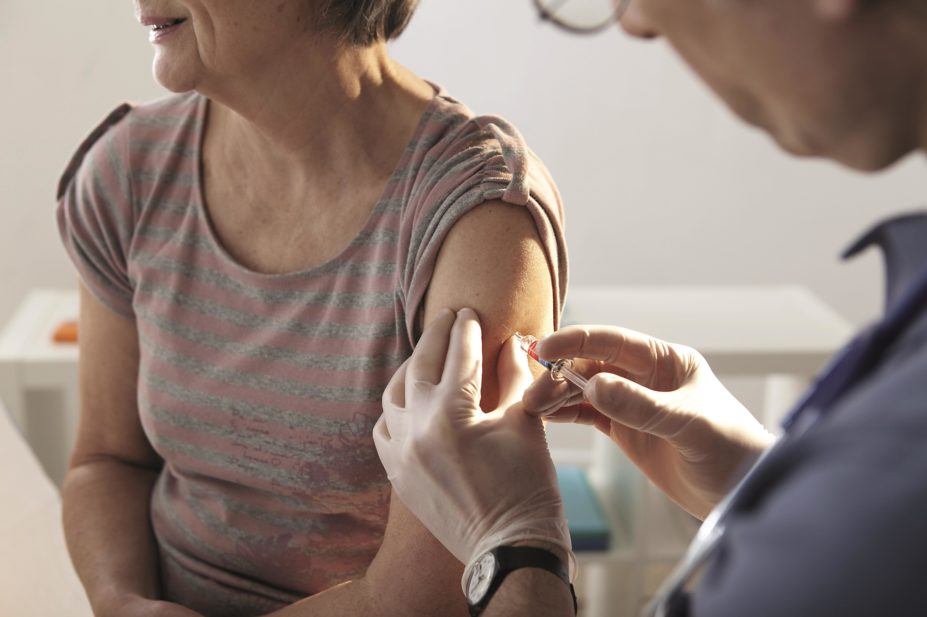
Shutterstock.com
The new adjuvanted flu vaccine given to people aged over 65 years in England for the first time in winter 2018 had a success rate of more than 60% in protecting them against the virus, according to statistics from Public Health England (PHE).
The overall success rate of the vaccine programme against all flu strains for all age groups during the 2018–2019 flu season was 44.3%, according to the annual flu report, which was published on 30 May 2019. In the previous flu season, the overall figure was 15.0%.
The effect of the Live Attenuated Influenza Vaccine given to children and young people aged 2–17 years was 48.6% in the 2018–2019 season.
In the 18–64 years age group, flu vaccination, for all vaccines, was effective in 44.2% of cases; the success rate, for all vaccines, in those aged over 65 years was 49.9%.
However, the success rate shot up to 62.0% in people aged over 65 years who were only given the new adjuvanted flu vaccine, which is designed to be effective against three flu strains.
Uptake of flu vaccinations fell this season for those aged over 65 years, compared with the 2017/2018 season (72.0%, down from 72.9%), people aged under 65 years but over six months with one or more underlying clinical risk factor (48.0%, down from 49.7%), and pregnant women (45.2%, down from 47.0%).
PHE also reported that influenza A(H1N1)pdm09 was the main strain of the virus circulating in the 2018/2019 season, although influenza A(H3N2) also circulated later on in the winter.
The PHE report said ‘low-to-moderate’ levels of flu activity were seen in the community, although the impact on secondary care in terms of hospitalisations and admissions to intensive care units was ‘high’.
Commenting on the figures, Richard Pebody, head of flu surveillance at PHE, said: “We’re pleased that the adjuvanted vaccine, which was offered to older adults for the first time this year in England, provided encouraging protection against the main circulating strains this winter.”


